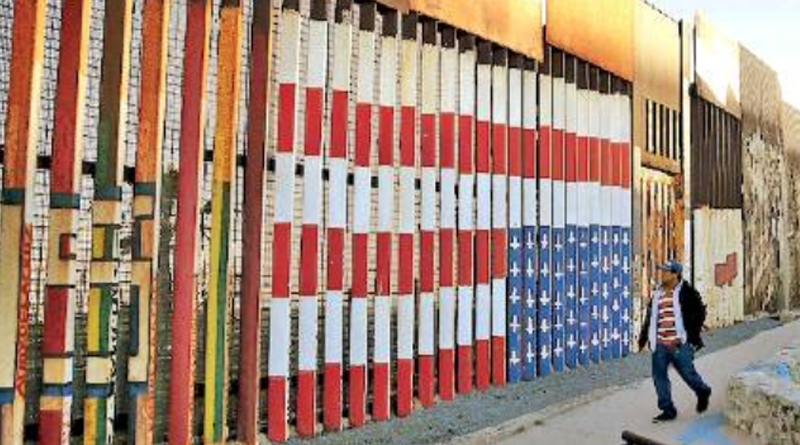The new US-Mexico-Canada Agreement has grim implications for India
Nafta (North American Free Trade Agreement) is dead. Long live USMCA (United States-Mexico-Canada Agreement). US President Donald Trump has bullied Mexico and Canada into a new free trade agreement to replace the old one. What lessons flow from this for India? The omens are not bright.
Despite the new pact, US duties on steel and aluminium, levied on ‘national security’ grounds, remain on Canada and Mexico. Canadian Prime Minister Justin Trudeau earlier castigated the notion that his country could be a security threat to the US. He has had to eat crow. This bodes ill for India’s own efforts to get exemption from US duties on steel and aluminium. If Trump denies waivers even to his formal trade partners, why should he treat India more leniently?
Auto Reverse
India has long opposed the introduction of labour and environmental standards in trade negotiations in the World Trade Organisation (WTO). Alas, these are prominent in USMCA, and show the direction in which the US will push India. For cars, the free trade rules will apply only if the local content is 75% (up from the old 62%). Moreover, 40% of this local value addition must be in factories paying $16 an hour or more. This will reduce the lowwage advantage that Mexico currently enjoys, and Trump hopes it will lead to the relocation of some auto factories from Mexico to the US.
India is much poorer than Mexico and can plead against the imposition of a minimum wage of $16 an hour on Indian factories exporting to the US. But India must prepare for a day when the US demands for some minimum wage stipulations. That can only make Indian exports even less competitive than they are today.
USMCA also has provisions for strengthening trade unions. This may inconvenience Mexico, but will not inconvenience India, whose labour laws are already very pro-labour.
The new agreement warns members against signing any free trade pact with ‘non-market economies’, meaning China. That aims to prevent cheap Chinese goods entering through third countries. India is currently negotiating to join the Regional Comprehensive Economic Partnership (RCEP), a free-trade agreement covering China, the 10 members of the Association of the South-East Asian Nations (Asean), South Korea, Australia and New Zealand. The external affairs ministry is keen on India joining this pact, but the finance ministry has grave reservations. The naysayers can now cite USMCA provisions as reason to avoid RCEP. Membership of a free-trade pact that includes China may leave India exposed to adverse action by the US.
The new agreement forces Canada to open its highly protected dairy sector. The old Trans-Pacific Partnership (TPP) negotiated by Barack Obama, but scrapped by Trump, provided for 3.25% of Canada’s dairy market to be opened to US exports. USMCA increases that by a smidgen to 3.6%.
The US has complained bitterly about high Indian protection for dairy products. It has threatened to abolish preferential tariffs it gives India under the Generalised Scheme of Preferences (GSP), unless India lowers its import barriers on US dairy products. India’s main barrier is religion-related. It argues that US dairy farmers feed animal products to their cows, that milk produced in this manner offends Indian religious sensibilities, and so must not be imported. Whether such arguments will be pass muster with a bully like Trump, who has whipped Canada into line, remains to be seen.
Heart Bleeds for Stents
WTO rules give members like India the right to make their own rules on price control and compulsory licensing of drugs. Trump has strengthened rules for intellectual property rights (IPR) in USMCA, to improve the profitability of his drug and entertainment industries. This suggests that he may demand tighter IPR requirements from India too. US producers have complained bitterly about India’s price control on medical stents. The US is demanding a relaxation of such price controls before continuing GSP benefits to India.
USMCA provides for renegotiation (and possible scrapping) every six years. This will create much uncertainty among investors, who invest on a much longer-term horizon. India stands warned that any deals it makes with the US will have a limited life. It will periodically be pressed to give up the special and differential treatment it enjoys under WTO rules.
Optimistic Indian diplomats see a silver lining — maybe even a silver cloud — in Trump’s China-bashing. He seeks far more than just a better trade deal with China. He sees China as a threat to US domination of the world, and wants to knock China down and humiliate it in as many areas as possible.
US officials see India as a credible long-term check on Chinese power in Asia, and have urged Trump to treat India leniently. But a president who has poured scorn and heavy import duties on his own allies is unlikely to treat India better. India may get a US waiver on the import of S-400 anti-aircraft weapon systems from Russia, and on limited imports of oil from Iran after Trump’s deadline of November 4. But sanctions may well follow if India continues arms imports from Russia and oil imports from Iran beyond a second deadline.


